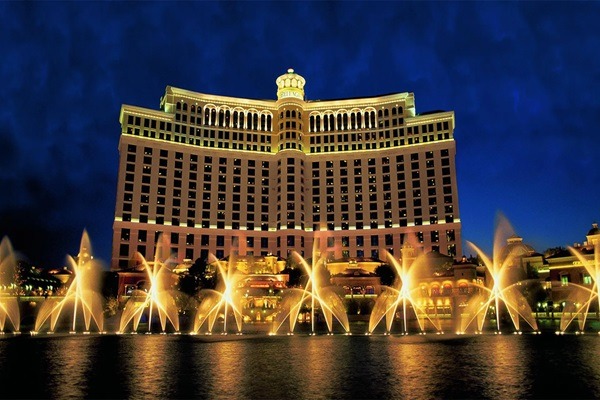Czech Republic: Intersection of Interests and Legislative Collisions
The Czech Republic stands at the crossroads of strict control and openness in the gambling sector. In 2017, the country opened its doors to operators from the EU and EEA, but the licensing process proved challenging: a significant number of foreign companies refused to obtain a permit, citing its incompatibility with European legislation.
A key factor in changing the approach was the decision of the European Court of Human Rights, which forced the Czech Republic to pay casino operators compensation amounting to €512.9 thousand. This precedent pushed the authorities to reconsider their gambling policy, and the new government has already signaled possible changes in the regulatory framework. Whether this will be a step towards greater control or, conversely, liberalization, remains to be seen.
Austria: Regulation on the Edge of Compromise
Austria tries to maintain a balance between state control and private business. Here, the monopoly remains the key player in poker, casinos, bingo, and lotteries, while licenses for sports betting are available to private operators at the regional level. However, the compliance of local laws with EU standards raises doubts. In 2016, Austrian courts issued contradictory decisions on this issue, and the question of legal compatibility of gambling with EU norms remains unresolved.
Belgium: Between Regulation and Overregulation
The Belgian model includes a strict licensing system, where online operators are forced to cooperate with local casinos to meet requirements. The country has 34 licenses for various types of gambling, but the market remains highly restricted. In 2018, the Belgian Constitutional Court exempted online gambling from VAT, but soon after, authorities adopted a royal decree tightening advertising in this sector. Despite all the regulations, Belgium faces criticism for excessive restrictions, which may contradict EU principles.
Bulgaria: Steps Towards Openness
Bulgaria has made significant progress in legalizing gambling by opening the market to operators from the EU, EEA, and Switzerland. Today, more than 20 licenses have already been issued, including to foreign companies. However, the authorities continue to tighten advertising regulations, which may impact the industry’s growth dynamics.
Hungary: Confrontation with the European Court
Hungary has long adhered to a monopoly model, but in 2017 the European Court ruled that its regulation contradicts Article 56 of the TFEU. This decision forced Hungarian authorities to consider reforming the sector, but in practice, the process is slow. Moreover, attempts to block payments to online casinos remain only as legislative proposals.
Germany: Legal Uncertainty
Germany has long demonstrated an ambiguous approach to gambling. In Schleswig-Holstein, almost all types of gambling are allowed, whereas in the other 15 states, only sports betting and horse racing are legalized. Federal authorities’ attempts to unify regulation are met with resistance from regional governments. As a result, the legal situation remains unstable, and international operators face uncertainty.

Greece: A Decade-Long Transition Period
In 2012, Greece issued 24 temporary licenses to private operators, but full regulation has yet to be implemented. In 2018, a draft law was proposed that should create an open licensing system, but key restrictions, such as a ban on random number generator games, raise concerns from businesses.
Denmark: An Example of a Balanced Approach
Denmark is considered one of the most progressive countries in gambling regulation. Since 2012, an open license has been available for online betting, casinos, and poker. Authorities actively block illegal sites, ensuring player security. This approach has allowed for the creation of a transparent and competitive market.
Finland: Monopoly Under Pressure
Finland remains one of the few EU countries where all gambling is under the control of a state monopoly. Despite this, the national regulator must navigate between EU requirements and internal restrictions. Marketing restrictions for offshore operators and provider blocking remain key tools in the hands of the state.
France: Privatization and Reforms
France follows a mixed model, where private companies can obtain licenses for betting and poker, but the lottery remains state-controlled. In 2010, a licensing system was introduced, and recently, parliament approved plans for the privatization of the national lottery. This may be the first step toward deeper industry reforms.
Ireland: Reform in Progress
Ireland lacks comprehensive online gambling regulation, but norms for betting have been in place since 2015. Authorities are working on creating a legal framework that could radically change the country’s gaming landscape in the coming years.
casino f1 and casino m platba t mobile: Trends and Payment Solutions
Modern technology is transforming the gambling industry, and platforms like casino f1 demonstrate how innovative solutions can enhance user experiences. At the same time, casino m platba t mobile is becoming a popular payment method, ensuring convenience and transaction security.
Conclusion: The Future of European Gambling
The European gambling market continues to evolve, facing challenges in the form of strict regulations and the need to adapt to EU standards. Each country seeks a balance between player protection, attracting investors, and supporting the budget. In this context, the resource https://www.casinopointcz.com/ remains an essential tool for finding information on licensed operators, while jobisite.com provides opportunities for industry professionals.
The development of gambling in Europe is a story of competing interests, the search for compromises, and the constant evolution of the rules of the game. And this process is far from over.


